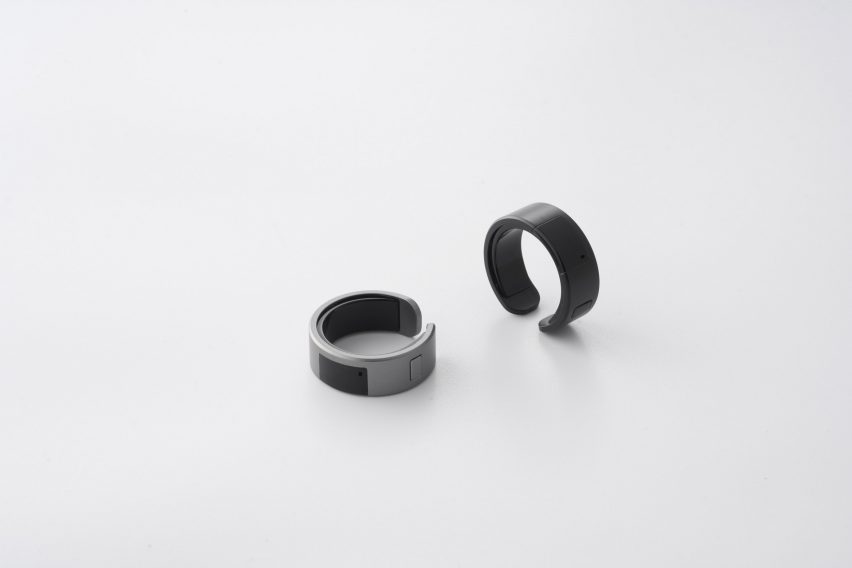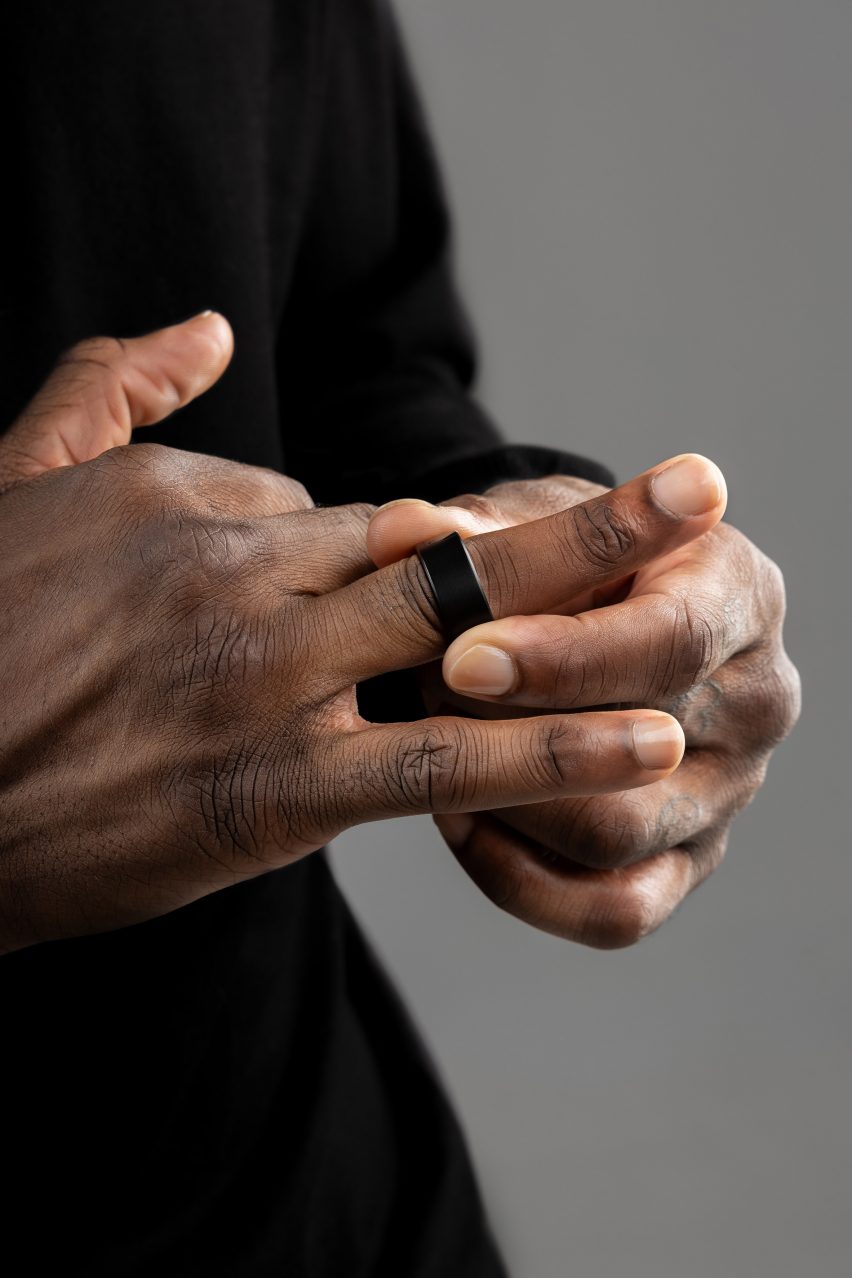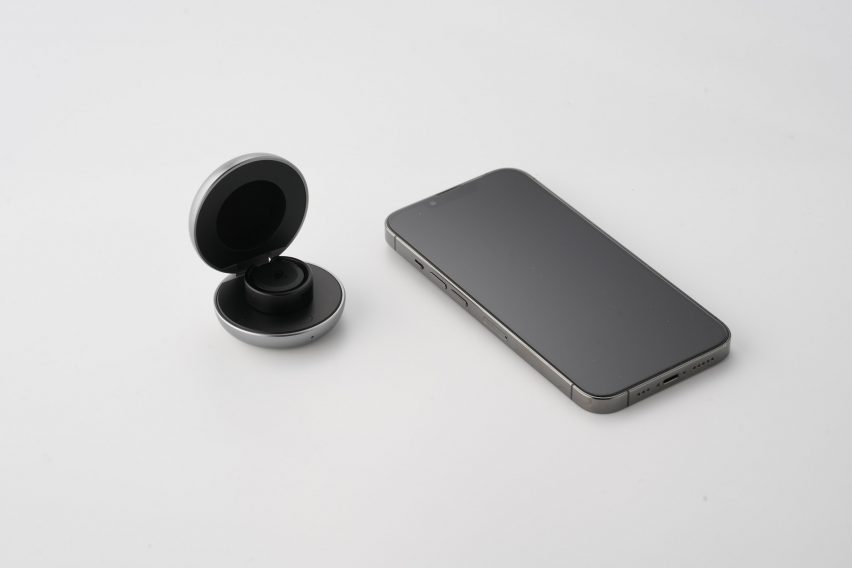
Wizpr smart ring provides discreet way to talk to AI
Users speak softly into their hand to give AI voice commands using the Wizpr smart ring, a wearable designed by Korean technology company VTouch.
The Wizpr ring proposes a new way of interacting with artificial intelligence (AI) and virtual assistants – by bringing a hand to the lips and unobtrusively speaking into it.
There is no need to push a button or use wake words, as the device is activated by a proximity sensor that detects when the ring is close to the user's mouth.

According to VTouch, this recognition is immediate and terminated when the hand moves away, with none of the delay associated with wake words. The device will filter out background noise so the user doesn't need to raise their voice and can even whisper.
The ring is designed to be used in conjunction with the user's choice of earphones so that they can hear the responses from their AI assistants.
VTouch – which made its name with non-contact touchscreens during the Covid era – is positioning the Wizpr ring as a quiet technology in a noisy world and as the future of AI interaction.

"AI-based conversational computing is expected to be the next big thing that goes beyond the limitations of graphical user interfaces such as PCs and smartphones," said VTouch founder and co-CEO SJ Kim.
"With Wizpr, we aim to realise a conversational computing environment where you can interact with AI by talking to it with your voice anytime, anywhere, without having to look at a screen."
Kim told Dezeen that he agreed with predictions that 2024 would be the year of the smart ring, which began circulating after Samsung unveiled its Galaxy ring at the Consumer Electronics Show (CES) in January, with Apple also rumoured to have a product in development.

"Among wearable devices, we believe that wearable glasses will not be popularised in the near future because they are difficult to use in daily life due to visual interference and difficult to improve wearability due to weight," said Kim.
"Earphones, on the other hand, have been popularised to the point where it is common to see people wearing them in their daily lives due to their wirelessness and ability to hear outside sounds," he continued.
"Rings are also popularly worn as accessories because they are comfortable to wear on a daily basis, so we believe that smart rings can be popularised as well."
He believes Wizpr would have an advantage over other smart rings like the Galaxy and Oura due to its focus on advanced AI rather than fitness and health.
VTouch imagines the ring being used to have contextual conversations with AI based on the user's calendar events, messages, emails, location and weather. It also imagines it will be used to send and listen to messages and control smart home devices.

"People's expectations of AI have risen to the level of ChatGPT and Gemini," said Kim.
"If you combine one, a conversational AI like ChatGPT; two, the already popular wearable wireless earphones; and three, the Wizpr ring, a wearable voice input device, you can realise conversational computing where you can talk to AIs like ChatGPT and Gemini anytime, anywhere."
"We are confident that this will be the real meeting of smartphones and AI," he added.

The Wizpr ring is made of titanium and epoxy resin and will be available in a black or silver finish. Its four-gram frame houses a battery, CPU, microphone, proximity sensor, Bluetooth, low-energy chip and antenna.
The ring also has a single button, which the user presses to switch between different AI assistants. They can also press the button five times to activate an emergency SOS function.
The Wizpr smart ring was previewed at CES earlier this year, where it was an honouree in the 2024 Innovation Awards. It is now in the final prototype stage and will go into production in June.
Other products that made waves at the trade show this year include a Game Boy-looking AI assistant by Teenage Engineering that aims to wean users off their smartphones.